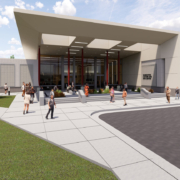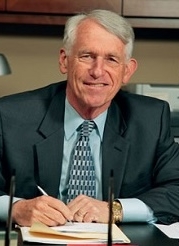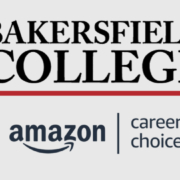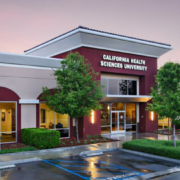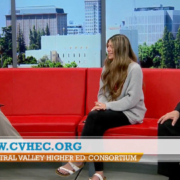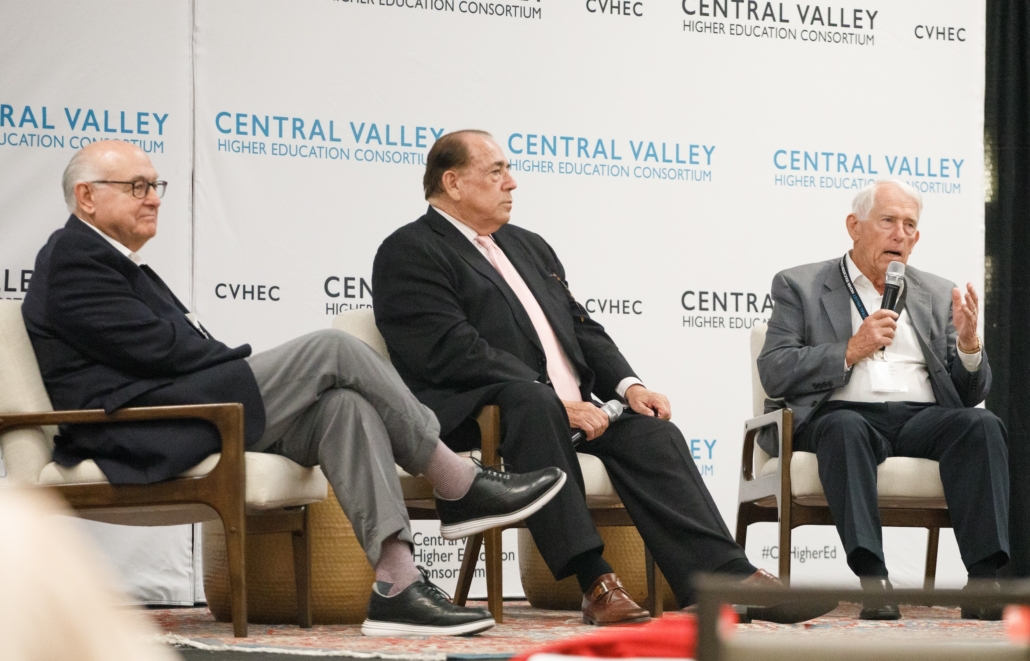
For the 2022 CVHEC summit panel “Celebrating 20 years of CVHEC in the Valley”, Dr. John D. Welty (right) was joined by two co-founders: Dr. Frank Gornick (left), chancellor-emeritus for West Hills Community College District; and Dr. Benjamin Duran, president-emeritus of Merced College and current CVHEC executive director who moderated the panel held May 6 in Fresno.
CVHEC: ‘a seamless higher education system
that would be vital to the valley’s future’
BY TOM URIBES
CVHEC Communications/Media Coordinator
(APRIL 27, 2022) — In 2000, then-Fresno State President John D. Welty lamented that the Central Valley lagged behind the rest of the state in the number of students who attain baccalaureate and graduate degrees.
So he, along with other area leaders in higher education, set out to make history.
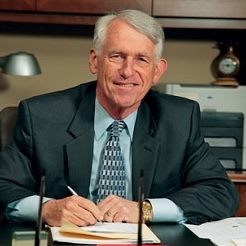
Dr. John D. Welty, President-Emeritus – Fresno State
They created the Central Valley Higher Education Consortium (CVHEC), a non-profit organization that summoned the chief executives of all 23 institutions of higher education in the Valley’s nine-county region from San Joaquin to Kern counties for a rare, united mission: to jointly improve the quality of life by increasing the college-going rate for Central Valley residents — “a seamless higher education system” that would be vital to the valley’s future, Welty said at the time.
This year, the Consortium will observe its 20th anniversary – now with 29 member-institutions of higher education from Stockton to Bakersfield whose presidents and chancellors make up the CVHEC Board of Directors – at its Higher Education Policy and Legislative Summit from 9 a.m. to 2 p.m. Friday, May 6, at the DoubleTree Hotel in downtown Fresno.
This year’s summit theme is “Post Pandemic World: Recovering with Equity and Inclusion in the Central Valley.” The deadline to register for the free CVHEC Summit is May 2 at https://bit.ly/CVHEC2022Summit.
And, President-Emeritus Welty, who retired from Fresno State in 2012 when he also left the CVHEC board, will return to serve on a historic panel and celebrate the 20th anniversary, Dr. Benjamín T. Durán, CVHEC executive director, announced.
The summit will draw nearly 150 higher education leaders from Central Valley colleges and universities; philanthropic, legislative, and state and national policy partners; and friends and advocates from throughout the region invested in creating an environment for students to succeed and complete their education in a timely manner.
Congressman Jim Costa will provide a federal update at 11:10 a.m. followed by a legislative panel at 11:30 a.m., “Broadband for All,” when he will be joined by Stan Santos, legislative chair for Communications Workers of America (Coastal Valley Council), and Lisa Lawrenson, acting superintendent/president of San Joaquin Delta College. Dr. Frank Gornick, former CVHEC president and chancellor-emeritus for West Hills Community College District, will facilitate the panel.
Much to celebrate, much to do still
The CVHEC Board of Directors will hold its quarterly meeting the day before – its first in-person meeting since the pandemic shutdown two years ago – followed by a Cinco de Mayo-themed reception for summit attendees that first night. They will have much to celebrate such as, among other accomplishments since the last summit in 2019, how they banded together virtually almost weekly in the early days of the shutdown to share challenges and solutions to that crisis.
But on Friday, with state and national legislators, policy makers and practitioners in the house, they will delve head-long into the theme of the summit to tackle such issues as equity, dual enrollment, transfer pathways and broadband disparity and access.
Dr. Kristen Clark, chancellor of the West Hills Community College District and president of the CVHEC board said the summit underscores the uniqueness of CVHEC: bringing together educators, legislators and advocates to focus on enhancing student success efforts across the Central Valley.
“Our panelists will introduce practices and initiatives taking place nationally, statewide and locally that are designed to provide greater access to more students, improve the completion rate and reduce time to degree,” Chancellor Clark said.
This is what Welty envisioned 20 years ago and Duran said CVHEC is honored that its founding president will return to Fresno for the summit.
“It is only fitting that two decades of productive work by the consortium and its member campuses be highlighted by our founder,” said Duran, a Merced College president-emeritus who served on the founding board of directors with Welty. Duran retired as Merced’s chief executive in 2015 and was called back into action as executive director of CVHEC in 2016.
He said 20 years of ongoing dedication to achieving its mission has vaulted CVHEC into a rare position: it is one of the few organizations of its kind in the nation that brings the chief executives of a region’s higher education institutions together to speak with one voice and act collectively on issues and challenges facing Central Valley college students.
“This summit and CVHEC are a rarity nationwide,” Duran added. “While it is a natural occurrence for colleges to be in competition for students in their respective regions, CVHEC fosters a unified voice dedicated to positively impacting the educational and social well-being of ALL students in California’s Central Valley as we pursue our mission to increase access, persistence and certificate and degree completions.
“Along with others, John Welty’s vision paved the way for this successful venture.”
A national leader in higher education
During his two-plus decades at the helm of Fresno State, the president-emeritus was recognized as a leader in the 23-campus CSU and an authority in national higher education issues. He chaired and served on multiple national boards and has testified before Congress.
He also served as trustee professor of the California State University for two years after retiring from the Fresno State presidency and holds professor status in Fresno State’s Kremen School of Education and Human Development. He is past chair of the California Health Sciences University Board of Trustees and continues to serve on the CHSU board.
‘… A seamless higher education system’
Welty also was a leader in establishing several University partnerships and initiatives such as the Central Valley Higher Education Consortium in 2000, obtaining a one-year $110,000 grant from The James Irvine Foundation to support the consortium and its members’ efforts to boost the college-going rate in the San Joaquin Valley.
Joined by then-UC Merced Chancellor Carol Tomlinson-Keasey and area community college officials to create CVHEC, Welty called it “a seamless higher education system” for valley students.
“It is critical that we increase the educational attainment of the residents of our region if we are going to enhance economic development and the quality of life in the Central California Valley,” the Fresno State president said at the time.
In the 20 years since it incorporated, the CVHEC has undertaken such initiatives as The College Place, College Next, Corequisite Support, Transfer Pathways, Guided Pathways and broadband access. The Consortium has also created the CVHEC Equity Task Force to pursue equity and social justice issues in higher education as well as the Central Valley Dual Enrollment for Equity and Prosperity (CVDEEP).
The CVHEC Cinco de Mayo Reception on May 5, open to all registered participants, will feature Las Hermanas Medina, a trio of sisters from Hanford who grew up performing and teaching for the Kings Cultural Center and are all either college alumni or current students, including CVHEC-member institutions.
Additional event information is available at CVHEC Summit 2022 .
Tom Uribes served as a public affairs specialist for California State University, Fresno for his 30-year career there, including 20 as the University’s public information officer most of it with President Welty. He joined the CVHEC team in 2020.
See:
CVHEC Summit 2022 Bio: Dr. John D. Welty April 26, 2022
CVHEC turns college age! (August 5, 2020)

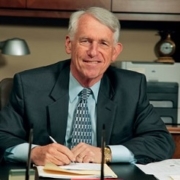




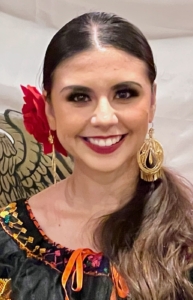
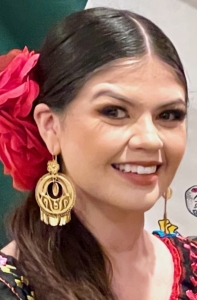
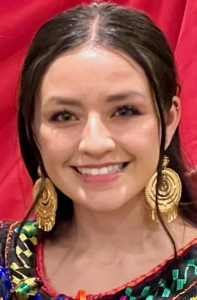
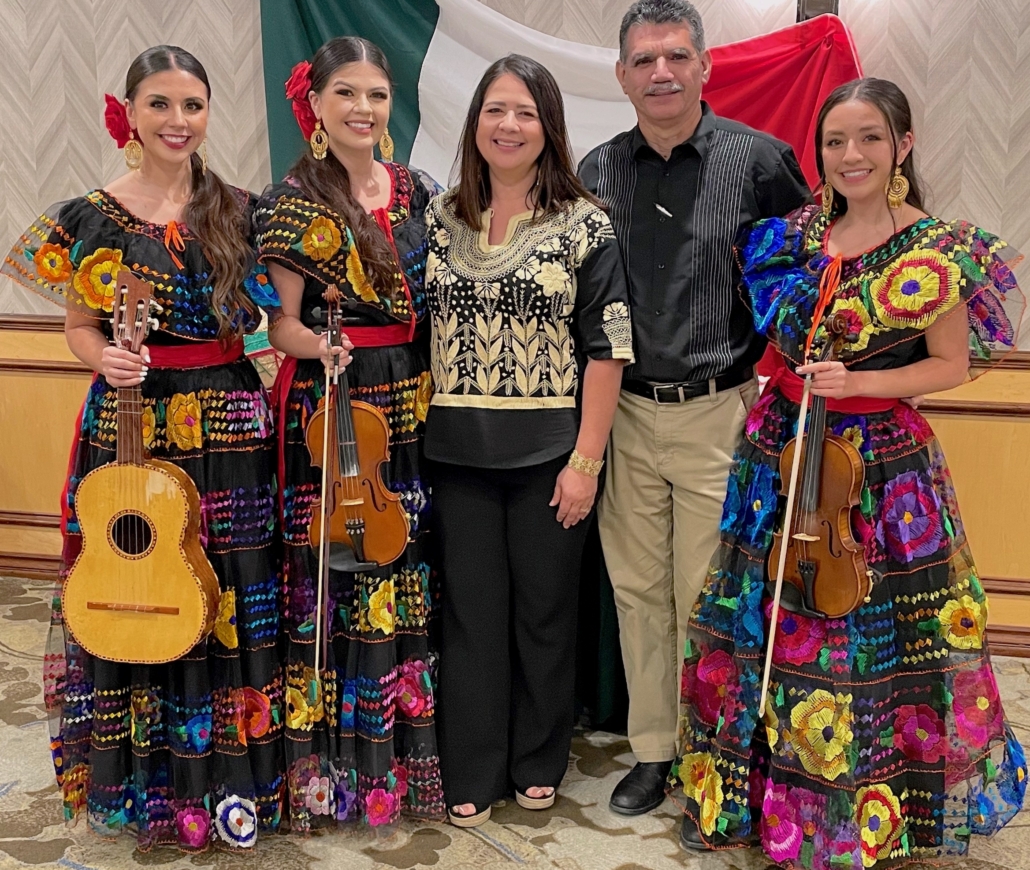
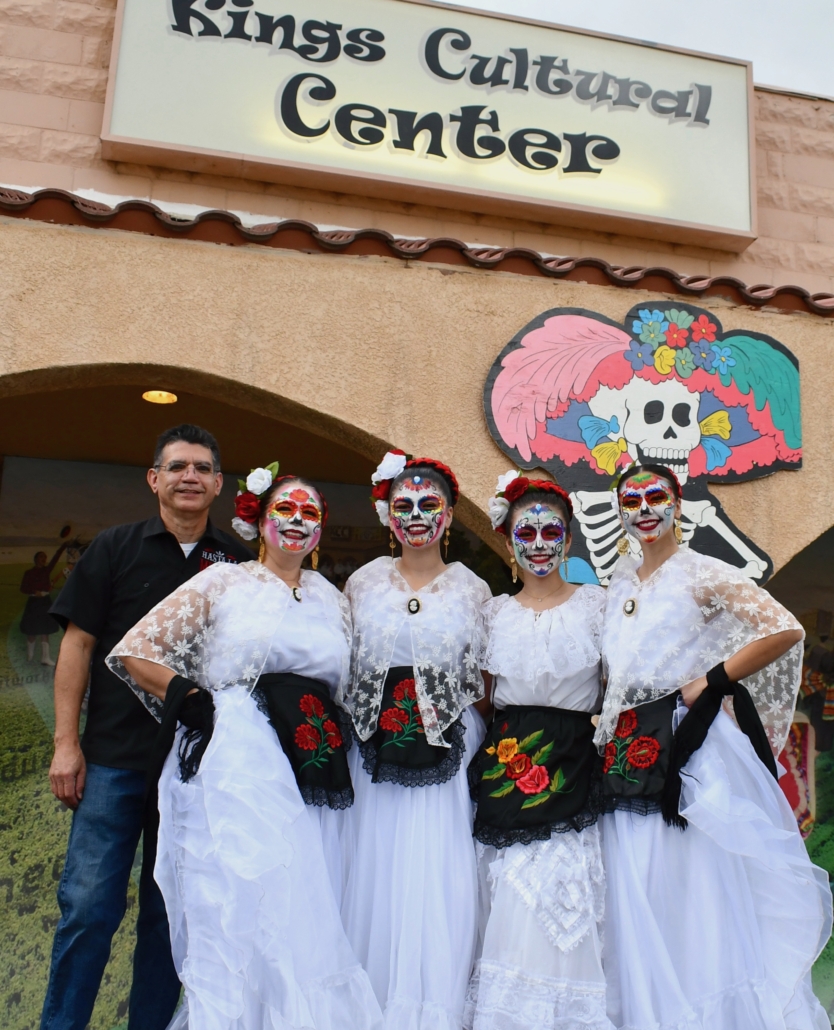 Dia de los Muertos 2021 at the Kings Cultural Center (Armona, Ca.) with the Medina family: Dr. Medina, wife Chely, daughters Bela, Paulina and Sophia.
Dia de los Muertos 2021 at the Kings Cultural Center (Armona, Ca.) with the Medina family: Dr. Medina, wife Chely, daughters Bela, Paulina and Sophia.